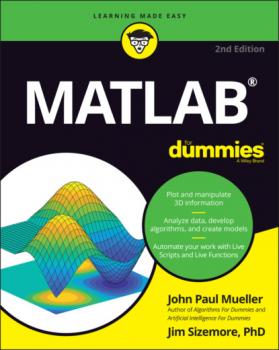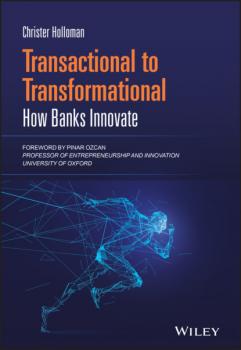John Wiley & Sons Limited
Все книги издательства John Wiley & Sons Limited101 Ways to Save Money on Your Tax - Legally! 2021 - 2022
THIS BOOK IS YOUR FIRST TAX DEDUCTION! WHY PAY MORE TAX THAN YOU HAVE TO? 101 Ways to Save Money on Your Tax – Legally! 2021-22 is the only tax guide you will need this year. Whether you’re submitting online or through your tax professional, Adrian Raftery, aka Mr Taxman, takes you step-by-step through the changes in the May 2021 budget, including the latest updates to COVID-19 pandemic government relief measures, tips for cryptocurrency trading, tax obligations for crowdfunding as a business activity and the use of private ancillary funds. No matter what your age or income, this helpful guide offers tips for all taxpayers including: employeesbusiness ownersstudentsfamiliessuperannuation fund membersinvestors with interests in rental properties and share portfolios.With 101 Ways to Save Money on Your Tax – Legally! 2021-22 , avoid the common mistakes that cost taxpayers every year, get answers to the most frequently asked questions and discover essential money-saving tax tips for the 2021-2022 tax year.
Leo Strauss
Leo Strauss’s lifelong intellectual mission was to recover ‘classical rationalism’, a pursuit that has made him a controversial figure to this day. While his critics see him as responsible for a troubling anti-democratic strain in modern politics, others argue that his thought is in fact the best defence of responsible democracy. Neil Robertson’s new introduction to Strauss aims to transcend these divides and present a non-partisan account of his thought. He shows how Strauss’ intellectual formation in Weimar Germany and flight from Nazism led him to develop a critique of modernity that tended to support a conservative politics, while embracing a radical sense of what philosophy is and can be. He examines the way in which Strauss built upon the thought of Nietzsche and Heidegger in order to show how their 'nihilism' led not to a standpoint beyond western rationality, but to a recovery of its roots. This skillful reconstruction of the coherence and unity of Strauss’ thought is the essential guide for anyone wishing to fully grasp the contribution of one of the most contentious and intriguing figures in 20th century intellectual history.
How Social Movements (Sometimes) Matter
People protest to try to change the world, because they think they can help change the world, and sometimes they do. But not by themselves, and generally not just how and when they want. This incisive book explains how groups of ordinary individuals can affect the world, what makes it possible when it works, and why it sometimes doesn't go to plan. Digging into previous scholarship on social movements, David S. Meyer looks at the origins of social movements, how they contrast with revolutionary campaigns, and assesses the periodic influence of activists on politics, policy, culture, and the way people live their lives. He concludes by stressing the narratives about political change that activists construct and the power that lies in these stories. With sharp insight and a wealth of intriguing cases, this book offers a fuller understanding of the politics and potential payoffs of protest politics.
Die Macht der virtuellen Distanz
Das digitale Zeitalter bringt immer wieder neue Komplikationen mit sich. Die Zunahme von Fern- und Heimarbeit, die auf einer zunehmenden Abhängigkeit von elektronischer Kommunikation beruht, und die allgemeine Zunahme virtueller Interaktionen hat zur Eskalation eines Phänomens namens «virtuelle Distanz» geführt. Die virtuelle Distanz, die unser Verhalten durch die drei Komponenten physische Distanz, operative Distanz und Affinitätsdistanz beeinflusst, wirkt sich nicht nur darauf aus, wie wir uns zu anderen Menschen verhalten, die Tausende von Kilometern entfernt sind, sondern sogar zu Kollegen, die direkt neben uns sitzen! Vielleicht noch problematischer ist, dass die virtuelle Distanz messbare Fehlfunktionen bei der Teamarbeit, der Innovation, der Effektivität von Führungskräften und der Gesamtleistung verursacht.<br> Aber es muss nicht so sein.<br> Das Buch von Karen Sobel Lojeski und Richard R. Reilly bietet spezifische und erprobte Lösungen, die diese Trends umkehren und die virtuelle Distanz zu einer Strategie machen können, mit der sich unausgeschöpfte Wettbewerbsvorteile erzielen lassen.<br> Überrascht?<br> Das Buch ist eine Pflichtlektüre für Führungskräfte, die die realistischen und quantifizierbaren Kosten des virtuellen Arbeitsplatzes verstehen wollen. Zum ersten Mal überhaupt können die Leser das Rätselraten bei der Verwaltung der virtuellen Mitarbeiter durch die Anwendung eines mathematischen Ansatzes, basierend auf Daten zu virtueller Distanz, vermeiden: das Virtual Distance Ratio. Dieses kann die besonderen Auswirkungen der virtuellen Distanz auf die kritischen Erfolgsfaktoren des Unternehmens genau bestimmen. Über die Geschäftsmessgrößen hinaus zeigen Lösungen auch Wege auf, wie man die Bedeutung und das Wohlbefinden in der Arbeitserfahrung der Menschen wiederherstellen und so das Leben im digitalen Zeitalter verbessern kann. Das Buch enthüllt einen aktuellen Datensatz, einschließlich einer preisgekrönten Analyse, der in einem großen Kreis von Führungskräften erhoben wurde und Situationen und Lösungen in mehr als 36 Branchen in 55 Ländern auf der ganzen Welt darstellt. Die Leser erhalten einen «ersten Blick» auf die Daten und ihre Aussagen darüber, wie Menschen in virtueller Entfernung zueinander weniger isoliert und stärker integriert werden können.<br> Jeder in der Organisation kann von der Lektüre profitieren, indem er herausfindet, wie sich die Finanzkennzahlen, Innovation, Vertrauen, Mitarbeiterengagement, Zufriedenheit und andere wichtige Leistungsindikatoren verbessern lassen. Und vielleicht das Beste von allem ist, dass die gesamte Belegschaft durch die Befolgung der Handlungsempfehlungen zur Verringerung der virtuellen Distanz die Werkzeuge erhält, die sie benötigt, um Sinn, Zweck und ein belebtes Gefühl von «Menschlichkeit» wieder in den Arbeitsalltag und das Alltagsleben zurückzubringen.<br>
The Political Vocation of Philosophy
It is time for philosophy to return to the city. In today’s crisis-ridden world of globalised capitalism, increasingly closed in on itself, it may seem harder than ever to think of ways out. Philosophy runs the risk of becoming the handmaiden of science and of a hollowed-out democracy. Donatella Di Cesare calls on philosophy instead to return to the political fray and to the city, the global pólis , from which it was banished after the death of Socrates. Suggesting a radical existentialism and a new anarchism, Di Cesare shows that Western philosophy has been characterised by a political vocation ever since its origins in ancient Greece, and argues that the separation of philosophy from its political roots robs it of its most valuable and enlightening potential. But critique and dissent are no longer enough. Mindful of a defeated exile and an inner emigration, philosophers should return to politics and forge an alliance with the poor and the downtrodden. This passionate defence of the political relevance of philosophy and its radical potential in our globalised world will be of great interest to students and scholars of philosophy and to a wide general readership.









